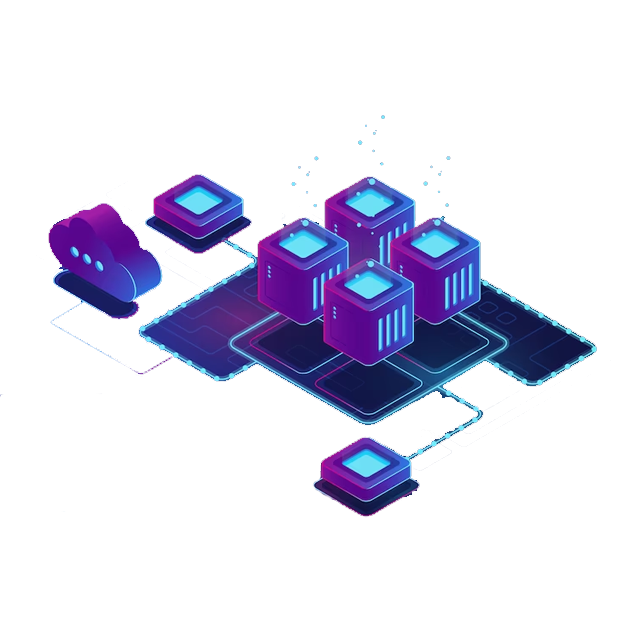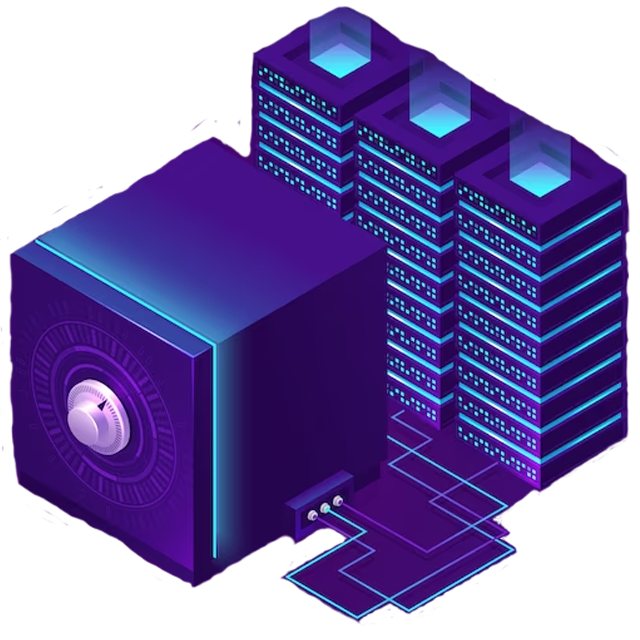Make Us Your Blockchain Security Partner
Across verticals, Blockchain can establish confidence in complex business transactions involving various entities that may or may not trust one another. The value of Blockchain is equal to the security it provides in this case. Any gap in security standards might jeopardise your company's reputation and result in significant damages. The use of blockchain has an impact on industries such as supply chain, finance, healthcare, retail, and government, and security is a major concern.
INVESICS’ Blockchain security services gives you a sense of security and we believe in the success of your company. Become our partner and let us help each other grow and take the next step of success together.



How we help you
BLOCKCHAIN TECHNOLOGY
- Blockchain is an open source, distributed ledger system that records and maintains digital transactions through a peer-to-peer network.
- Or we can say it is a collection of distributed blocks wherein each block contains a transaction, also the blocks are encrypted.
- To maintain integrity of each transaction, each block contains hash of the previous block transaction.
- Also the transactions are authenticated using collaboration of the members of the blockchain.
- Its main feature is scalability and transparency of information alongwith providing secure encryption.
While you are thinking about blockchain security, let us find solutions for your security problems


Blockchain Architecture
As we discussed above, that blockchain is a decentralized peer-to-peer network of digital transactions authenticated through collaboration of all blocks, now we discuss components that make up the blockchain architecture:
Node – can be considered as any computer which is part of the blockchain containing its own block, nodes have a copy of the whole blockchain ledger.
Miners – specific nodes that are used for verification of new blocks before adding to the blockchain. Whenever a new block requests to commit transaction, the block is provided with a full image of the blockchain system, then miners verify the hash of the system with hash of the new system containing the new block, if the data matches then the miners are rewarded according to consensus or network protocols.
Block – is a data structure used to hold information about the transactions which are distributed throughout the blockchain. It contains information such as some data (eg:- number of bitcoins), hash of the block, hash from the previous attached block. The block is hashed to protect integrity and verify that data is not modified.
Transaction – records or information that is stored in the block, it is building block of the blockchain technology.
Make secure transactions USP of your business and Let us bring blockchain security services to you.
Methods
Practices to Secure BlockChain
Never rely wholly on security provided by blockchain
Though blockchain is considered to be most secure system with strong encryption, attackers can still find vulnerabilities and exploit or use personal information stored in the block so never store personal identifiable information in the blockchain as at any time, it may get breached. Instead just store the required information to be operational.Don’t store bulky files on blockchain
Also never store very large files on the blocks as there may be two risks associated; first there will be added cost to replicate the data and if compromised it may lead to fatal losses. Instead store just pointer to the file in the block and actual data on some cloud hosting platform, also store hash of the file to ensure integrity i.e, it has not been accessed or modified.Use permissioned blockchains
Instead of public blockchain platforms like Ethereum or Bitcoin where data is publically available to all participating nodes by default, use permissioned blockchain such as HyperLedger where nodes need to request permission to access the block data to prevent unauthorized access by any malicious node.Use appropriate governance model or consensus for the blockchain
Most of the risks in blockchain are not technical but occur due to improper consensus, use proper governance policies for adding or removing nodes and distributing transaction so that any malicious actor cannot take advantage, also include policies for time-to-time removal of such malicious nodes which can be a threat to the blockchain infrastructure.Here are some vulnerabilities found on popular public blockchain platform Bitcoin which is widely used for transferring cryptocurrency:
Blockchain Vulnerabilities
CVE-2013-4627
Denial of service vulnerability in bitcoind and bitcoin-Qt caused due to sending crafted text messages by any attacker.CVE-2013-3220
Denial of service vulnerability caused due to improper handling of database lock based on bit size of the block which could be used by attackers to upload large files without locking the database to enable double-spending features.CVE-2013-5700
Bloom filter in bitcoin core caused denial of service attack by crafting special messages by the attacker in the implementation.CVE-2013-4165
Information disclosure vulnerability in bitcoinrpc which displayed authentication failure errors which could be used by attackers to bypass it by timing side-channel attack.CVE-2018-20587
Improper access mechanism which lead to local users accessing wallet data to steal cryptocurrency by binding to ipv6 localhost in bitcoin core version 0.12CVE-2019-15947
Bitcoin core stores wallet data in plaintext and during crash, it creates a dump file. Attacker can access the private keys from the dump file for accessing wallet dataCVE-2016-10725
In bitcoin core, non-special alerts are displayed in priority to special alerts which lead to attackers gaining information about the blockchain system.CVE-2016-10724
Denial of service(memory exhaustion) vulnerability in bitcoin core caused due to triggered network alerts by malicious nodes in the blockchain.Security Testing Blockchain Platform
General tips for security of Blockchain :
- Check whether the peer-to-peer network is secure by trying to bypass the ssl/tls encryption if used or intercept the communication as most of the attacks occur due to intercepting network traffic.
- Also check wheter the blocks can be intercepted while validating the transaction, as some of the malicious nodes can steal transaction data or modify the transaction for further attacks.
- Check validations of the block size to verify if large size blocks are not allowed to be added to the chain, since any breach to such data can prove fatal.


Explore How Invesics Can Become Your Digital Guard!
Find out from our cyber-security experts on a FREE consultation call